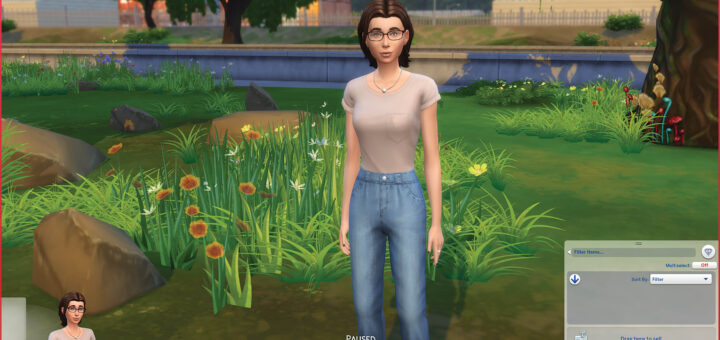An ideal life is achievable! Just not in real life?

Abbie Riglin, Photo Editor
When talking about video games, most people think of typical console games like Call of Duty, Halo, or the plethora of sport simulation games such as Madden, FIFA, etc. But for me, my version of escapism started with The Sims, a series of life and social simulation video games developed by Maxis and published by Electronic Arts. It’s not just me that has become invested in The Sims, the franchise has sold nearly 200 million copies worldwide, and is one of the best-selling video game series of all time.
My love for The Sims started from my sister. I was no older than seven when she was playing The Sims 2 on our family desktop during a time where there was only one computer in a household. While waiting for my turn to play CoolMathGames (like all the other cool second graders), I’d watch her play. Although I didn’t understand the point of the game, I found myself fascinated by all their crazy actions, giggling with my sister at the way Simlish sounded.
It wasn’t until a couple of years later when The Sims 3 came out that I fully became invested in the game. I discovered my love of building houses and when the Cats & Dogs expansion came out, it was game over. Briefly, my parents thought I’d become a crazy cat lady with how often I’d show them my coolest new pet.
But even without the addition of pets, The Sims was a world very different from the one I was growing up in. It promoted diversity and showed me people I could relate to. Plus, I could have a pool? Life couldn’t get much better than that.
The Sims 4 holds all the same integrity as previous releases in the franchise but brings to the table revolutionary graphics, better building tools, as well as more add-on packs than any other instalments. But this came at an unfortunate price according to Sims players. Fan favourite content in The Sims 3 such as colour customization (12-year-old me was obsessed with cow print beds), free roam within the worlds and the customization of basements, grocery stores, schools and work locations would not be featured in the game. Since then, game packs with added paid content have provided more interactive gameplay for users. Although the game simplified previously used mechanics and gameplay, The Sims 4 has become my favourite game within my favourite series, especially through the COVID-19 pandemic.
It has been a time where everyone has felt lost, bored and unable to control the direction of their life. With me particularly, I felt like I was back in high school, stuck in the same endless pattern with even less scenery change. But The Sims was my way of breaking that pattern and building a more idyllic version of my own life.
Possibly the best part of the utopian society I created was the cheat codes. In real life, I was barely working due to shutdowns, but in The Sims? Motherlode, a cheat to get 50,000 simoleons, was my best friend and allowed me to skip the starter home phase, unlike real life where I will no doubt move from one mortgage to another. While Create-A-Sim allowed me to create myself according to my own beauty standards. The moral of the story is that The Sims gave me a sense of control when the pandemic gave me none.
This being said, I can’t compare my simulated life to my real one. Emotions are felt by people, not machines, and even less so by Sims. The most important thing I learned was becoming comfortable in myself didn’t take much. As long as I was happy and taking in the world as it came at me, I, like a Sim, could feel happiness through even the smallest of things.




